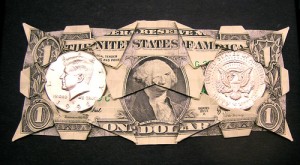 Unions used to be the leading source of organizational political contributions. A quick look at the Opensecrets list of “heavy hitters”—the top outside donors since 1989—shows that of the top 15 donor organizations, 10 are still labor unions. And Opensecrets only counts federal PAC contributions (which are opt-in); unions also maintain sophisticated state- and local-level political operations funded (at least in part) with general dues money. Unfortunately for union members, these contributions can only be avoided through a complicated, opt-out process that varies by state and union. The Employee Rights Act, a proposed federal legislation, would require that all union political spending be opt-in, a policy supported by 83 percent of union households in recent national polling.
Unions used to be the leading source of organizational political contributions. A quick look at the Opensecrets list of “heavy hitters”—the top outside donors since 1989—shows that of the top 15 donor organizations, 10 are still labor unions. And Opensecrets only counts federal PAC contributions (which are opt-in); unions also maintain sophisticated state- and local-level political operations funded (at least in part) with general dues money. Unfortunately for union members, these contributions can only be avoided through a complicated, opt-out process that varies by state and union. The Employee Rights Act, a proposed federal legislation, would require that all union political spending be opt-in, a policy supported by 83 percent of union households in recent national polling.
Citizens United v. FEC changed the restrictions. Now, unions, nonprofits (within limits), and for-profit companies have the same rights to speak about politicians and political issues in election season as individuals, meaning unions can use dues money to make “un-coordinated independent expenditures” that weigh in on elections without input from particular candidates’ campaigns. In unions’ case, this allows them to spend even more money pushing the union leaderships’ preferred candidates, even though exit polls show that roughly 40 percent of union members vote Republican at the federal level nationwide, while the overwhelming amount of union donations go to Democrats.
But rather than enjoying their new privileges, unions (and liberal “watchdog” organizations they fund) are annoyed that business-friendly groups are also able to play the game. Unions’ solution? If reports from a meeting between New York Gov. Andrew Cuomo and labor unions that support the left-wing Working Families Party (which typically backs union-friendly Democrats under New York State’s rare multiple-ballot-line candidacy system) are accurate, their proposal is “public campaign financing.”
And how might that benefit unions? An op-ed in The Wall Street Journal illustrates how unions manipulate the decisions of New York City’s Campaign Finance Board through political favor trades and get help from “questionable” rulings:
The CFB has developed decidedly undemocratic habits. Most recently, the board cleared the Democratic primary field for new New York Mayor Bill de Blasio. Having shut out private money while opening the floodgates to unions, along the way it also has played favorites with millions of dollars of taxpayer money. […]
New York City’s campaign finance law also contains a vast carve-out for unions. In 2005, the CFB attempted to codify its practice of treating local union contributions as “single source” contributions. That is, each union was subject to the $4,950 contribution limit per candidate that applies to individuals.
Labor pushed back and got a bill through the City Council in 2005 that allows for nearly unlimited campaign contributions by unions. Each of many local union chapters now has the ability to make the maximum $4,950 donations as a separate entity—even though they all remain firmly under the umbrella of a single union. Frederick A.O. Schwarz Jr. , then the chairman of the Campaign Finance Board, trashed the bill as a “poorly conceived measure” and “retrogressive.”
So unions get favorable rulings to clear the field for their chosen candidates, and they get a carve-out that lets them evade donation caps. No wonder unions like the SEIU’s New York locals and the Communications Workers of America want to replicate their successful City scheme statewide.
Without “paycheck protection” like in the ERA, the rights of employees who dissent from union political preferences will be infringed even more under this or a similar scheme that restores unions’ effectively unopposed political playing field. It’s past time for Congress to come together, advance the interest of America’s employees, and pass the Employee Rights Act.



